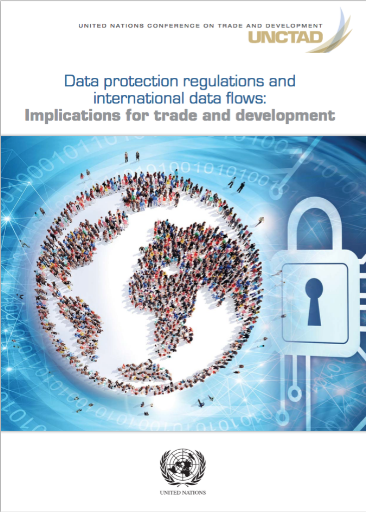 Research
Research
Workshop - Legal Challenges to the International Transfer of Data (January 2017)
- Slide Presentation at CPDP2017 (The Age of Intelligent Machines) Computers, Privacy & Data Protection 10th International Conference, Brussels - 25 January 2017
- UN advice on data protection and international data flows
- UN concerns on cross border data transfers / surveillance
- Privacy Shield and SCCs: Three potential vulnerabilities to legal challenge
- Next steps
- Further information
![[ Galexia Dots ]](/images/hr.gif)
Slide Presentation at CPDP2017 (The Age of Intelligent Machines) Computers, Privacy & Data Protection 10th International Conference, Brussels - 25 January 2017
Galexia Director Chris Connolly presented at CDPD2017 - The Age of the Intelligent Machine at the 10th International Computers, Privacy & Data Protection (CPDP) International Conference in Brussels on 25 January 2017.

[Download presentation slides (PDF) »]
UN advice on data protection and international data flows
- UN report:
- Data protection is directly related to trade
- Too little protection can create negative market effects through affecting consumer confidence
- Too much protection can overly restrict business activities and trade
- Ensuring that laws consider the global nature and scope of their application, and foster compatibility with other frameworks, is critical
UN concerns on cross border data transfers / surveillance
- Gaps in coverage
- No laws, partial laws or laws that contain broad exemptions
- Negative impact of data localization on trade and development
- Balancing surveillance and data protection
- Support for ‘Necessary and Proportionate’ test
- Support for ‘Narrowly Tailored’ test
- (in the US the term is ‘as tailored as feasible’)
- Support for the provision of judicial redress for data subjects, regardless of nationality
- Promotion of ‘transparency reports’ by business
Privacy Shield and SCCs: Three potential vulnerabilities to legal challenge
- 1. Bulk Surveillance
- Presidential Policy Directive 28 (PPD-28) 2014 allows bulk surveillance in six circumstances. Five are narrow in scope and tackle serious / significant risks. However, the sixth category is just the word: ‘cybersecurity’. There is no additional test (e.g. serious risk) and no details are provided about the scope of this term.
- 2. Independence of dispute resolution
- European and US approaches to the independence of dispute resolution providers are contrasting, with stricter rules applying in Europe.
- 3. Fine print exclusions
- History of businesses relying on fine print exclusions (Safe Harbor, APEC CBPRs) to limit scope of their certification and / or to limit dispute resolution. This practice has reduced in recent years, but is open to challenge in the Privacy Shield and SCCs.
Next steps
- 1. United Nations
- Promoting the development of consistent privacy laws, especially in developing nations
- Discouraging data localization
- Promoting a balanced approach to cross border data transfers and surveillance
- 2. Privacy Shield
- The annual review is an opportunity to strengthen some protections
- (e.g. promoting independent dispute resolution and removing fine print exclusions)
- Clarify some of the framework text
- (e.g. the scope of the ‘cybersecurity’ bulk surveillance exception)
- The annual review is an opportunity to strengthen some protections
- 3. SCCs
- EC tasked with ensuring that the recent protections introduced in the Privacy Shield are extended to SCCs, and that a proper governance framework is established for SCCs (e.g. monitoring and regular reviews)
Further information
- United Nations Conference on Trade and Development (UNCTAD) - Global Cyberlaw Tracker
- Data protection regulations and international data flows: Implications for trade and development (April 2016)
- BSA / Galexia Global Cloud Computing Scorecard (April 2016)
- http://cloudscorecard.bsa.org/2016/
- Look out for the updated version in mid-2017
- Galexia

[Download presentation slides (PDF) »]
Galexia Director Chris Connolly presented at CDPD2017 - The Age of the Intelligent Machine at the 10th International Computers, Privacy & Data Protection (CPDP) International Conference in Brussels on 25 January 2017.
Read more »
![[ Galexia Dots ]](/images/hr.gif)

![[2018 Global Cloud Computing Readiness Scorecard]](/public/ssi/pubs/pub_1.png)



 print this page
print this page sitemap
sitemap rss news feed
rss news feed manage email subscriptions
manage email subscriptions